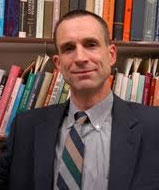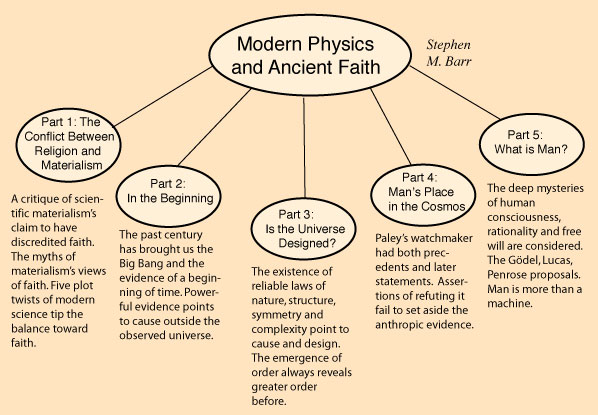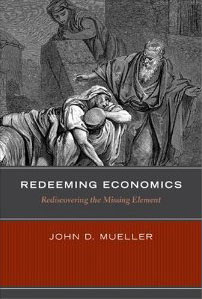THE INTERIOR CASTLE
OR
THE MANSIONS
By
St. Teresa of Avila
The Third Mansion Chapter 1: Â [powerpress]
For the pdf containing the complete text and footnotes click here
1. Souls in the Third Mansions. 2. Insecurity of this life. 3. Our danger of falling from grace. 4. The Saint bewails her past life. 5. Our Lady’s patronage. 6. Fear necessary even for religious. 7. St. Teresa’s contrition. 8. Characteristics of those in the Third Mansions. 9. The rich young man in the Gospel. 10. Reason of aridities in prayer. 11. Humility. 12. Tepidity. 13. We must give all to God. 14. Our debt. 15. Consolations and aridities
Translated from the Autograph of St. Teresa of Jesus by
The Benedictines of Stanbrook
Thomas Baker, London [1921]
Dom Michael Barrett, O.S.B.Censor Deputatuus
Nihil Obstat:✠Edward Apostolic Administrator Birmingham, Oscott.
February 24, 1921
Tags: catholic, catholic podcast, catholic prayer, cathollc spirituality, st teresa, st. teresa of avila, Teresa of Avila, the interior castle, THE INTERIOR CASTLE OR THE MANSIONS
This entry was posted on Wednesday, July 27th, 2011 at 3:48 pm
You can follow any responses to this entry through the RSS 2.0 feed.
Episode 9 – Dr. Stephen Barr’s “Modern Physics & Ancient Faith” part 2
[powerpress]
In this episode Dr. Reno examines Faith and Reason through the work of Dr. Stephen Barr’s “Modern Physics and Ancient Faith” and enters into the concept of “Scientific Materialism”. Â part 2
“Christian Apologetics with Dr. R. R. Reno” explores numerous facets of faith and reason in the life of the Church and the world. Grounded on the work of giants, such as St. Thomas Aquinas, St. Bonaventure, Blessed John Newman, soon-to-be Blessed John Paul II, G. K. Chesterton, Blaise Pascal and Stephen Barr, Dr. Reno helps us to open our minds to make the journey to our hearts.
R. R. Reno is the editor at First Things: A Journal of Religion, Culture, and Public Life, and Professor of Theology, currently on leave from Creighton University. His theological work has been published in many academic journals. Essays and opinion pieces on religion, public life, contemporary culture, and current events have appeared in Commentary, and the Washington Post. In Fighting the Noonday Devil Reno suggests that putting ourselves at the disposal of what is real is what trains us for true piety. His other recent books include Genesis: Brazos Theological Commentary on the Bible and Sanctified Vision: An Introduction to Early Christian Interpretation of the Bible.
Tags: Ancient Faith, catholic, catholic podcast, catholic prayer, cathollc spirituality, creighton university, faith and reason, first things, Modern Physics and Ancient Faith, stephen barr
This entry was posted on Tuesday, July 26th, 2011 at 7:43 pm
You can follow any responses to this entry through the RSS 2.0 feed.
“Redeeming Economics: Rediscovering the Missing Element”, boy do we need this now! John Mueller, of the Ethics and Public Policy Center, does an extraordinary job of pointing out what we are missing in all the discussions about economics…the fundamental productive unit – the family.  He helps us to leap forward by looking backwards, by looking at the error in Adam Smith’s theory which has had no way to account for a fundamental aspect of human experience: the social relationships that define us, the loves (and hates) that motivate and distinguish us as persons.
Mueller, of the Ethics and Public Policy Center, does an extraordinary job of pointing out what we are missing in all the discussions about economics…the fundamental productive unit – the family.  He helps us to leap forward by looking backwards, by looking at the error in Adam Smith’s theory which has had no way to account for a fundamental aspect of human experience: the social relationships that define us, the loves (and hates) that motivate and distinguish us as persons.
In trying to reduce human behavior to mere exchanges, modern economists have lost sight of how these essential motivations are expressed: as gifts (or their opposite, crimes). Mueller makes economics whole again, masterfully reapplying economic thought as articulated by Aristotle, Augustine, and Aquinas.
Contrarian and compelling, Redeeming Economics covers everything from unemployment, to inflation, to the economics of parenthood, to the greatest geopolitical challenge facing the United States, to flaws in the mega-bestseller Freakonomics, to the author’s illuminating exchange with the controversial philosopher Peter Singer.
Learn more about the book here
Tags: Adam Smith, catholic, catholic podcast, catholic prayer, cathollc spirituality, economics, John Mueller
This entry was posted on Tuesday, July 26th, 2011 at 5:16 pm
You can follow any responses to this entry through the RSS 2.0 feed.
“The righteous will shine like the sun in the kingdom of their Father”
[powerpress=”daily-scripture”]
an excerpt from today’s reflection by Don Schwager:
Are you quick to judge the faults of others? Jesus’ parable teaches us patience lest we judge before the time is right. Jesus also warns that there is an enemy who seeks to destroy the good seed of his word before it can bear fruit. Both good and evil can be sown in our hearts like tiny seeds which germinate, and in due time yield a harvest of good or bad fruit. We must stand guard lest evil take root in our hearts and corrupt us. Charles Read said: “Sow an act and you reap a habit. Sow a habit and you reap a character. Sow a character and you reap a destiny.†In the day of judgment each will reap what he or she has sown in this life. Those who sow good will shine in the kingdom of their Father. They will radiate with the beauty, joy, and fulness of God’s love. Do you allow the love of Christ to rule in your heart and in your actions?
“Lord Jesus, may your all-consuming love rule in my heart and transform my life that I may sow what is good, worthy, and pleasing to you.â€
for the full reflection visit : Daily Reading and Meditation
Tags: catholic, catholic podcast, catholic prayer, cathollc spirituality, don schwager, gospel of matthew
This entry was posted on Tuesday, July 26th, 2011 at 4:04 pm
You can follow any responses to this entry through the RSS 2.0 feed.
THE INTERIOR CASTLE
OR
THE MANSIONS
By
St. Teresa of Avila
The Third Mansion Chapter 2: Â [powerpress]
For the pdf containing the complete text and footnotes click here
1. Imperfections of dwellers in the first three mansions. 2. Our trials show us our weakness. 3. Humility learnt by our faults. 4. Love of money. 5. Liberty of spirit. 6. On bearing contempt. 7. Detachment proved by trials. 8. Virtue and humility are the essentials. 9. Perfection requires detachment. 10. We should try to make rapid progress. 11. Leave our cares in God’s hands. 12.Humility more necessary than corporal penances. 13. Consolations rarely received until the fourth mansions. 14. Advantages of hearing of them. 15. Perfection consists in love, not in reward. 16. St. Teresa’s joy at seeing other souls favoured. 17. These graces should be striven for. 18. Obedience and direction, 19. Misguided zeal for others.
Translated from the Autograph of St. Teresa of Jesus by
The Benedictines of Stanbrook
Thomas Baker, London [1921]
Dom Michael Barrett, O.S.B.Censor Deputatuus
Nihil Obstat:✠Edward Apostolic Administrator Birmingham, Oscott.
February 24, 1921
Tags: catholic, catholic podcast, catholic prayer, cathollc spirituality, detachment, st. teresa of avila, Teresa of Avila, the interior castle, THE INTERIOR CASTLE OR THE MANSIONS
This entry was posted on Tuesday, July 26th, 2011 at 8:43 am
You can follow any responses to this entry through the RSS 2.0 feed.
THE INTERIOR CASTLE
OR
THE MANSIONS
By
St. Teresa of Avila
The Fourth Mansion Chapter 1: Â [powerpress]
For the pdf containing the complete text and footnotes click here
1. Graces received in this mansion. 2. Mystic favours. 3. Temptations bring humility and merit. 4. Sensible devotion and natural joys. 5. Sweetness in devotion. 6. St. Teresa’s experience of it. 7. Love of God, and how to foster it. 8. Distractions. 9. They do not destroy divine union. 10. St.Teresa’s physical distractions. 11. How to treat distractions. 12. They should be disregarded. 13. Self-knowledge necessary.
Translated from the Autograph of St. Teresa of Jesus by
The Benedictines of Stanbrook
Thomas Baker, London [1921]
Dom Michael Barrett, O.S.B.Censor Deputatuus
Nihil Obstat:✠Edward Apostolic Administrator Birmingham, Oscott.
February 24, 1921
Tags: catholic, catholic podcast, catholic prayer, cathollc spirituality, st teresa, st. teresa of avila, Teresa of Avila, the interior castle, THE INTERIOR CASTLE OR THE MANSIONS
This entry was posted on Monday, July 25th, 2011 at 6:16 pm
You can follow any responses to this entry through the RSS 2.0 feed.
“Are you able to drink the cup that I am to drink”
[powerpress=”daily-scripture”]
an excerpt from today’s reflection by Don Schwager:
When Jesus called the twelve apostles to be his inner circle of disciples who would teach and exercise spiritual authority on his behalf, he did the unthinkable! Jesus taught contrary to the world’s understanding of power, authority, and position, by reversing the order of master and servant, lord and subject, first and last! Jesus wedded authority with love, position with sacrifice, and service with humility. Authority without love is brutish and self-serving. Position without respect and concern for the subordinate is demeaning and rude. And service without generosity and sacrifice is cheap and unkind.
Those who wish to serve with Christ and to exercise authority in God’s kingdom must be prepared to sacrifice – not just some of their time, money, and resources – but their whole lives and all that they possess! Jesus used stark language to explain what kind of sacrifice he had in mind. His disciples must drink his cup if they expect to reign with him in his kingdom. The cup he had in mind was a bitter one involving crucifixion. What kind of cup does the Lord have in mind for us? For some disciples such a cup entails physical suffering and the painful struggle of martyrdom. But for many, it entails the long routine of the Christian life, with all its daily sacrifices, disappointments, set-backs, struggles, and temptations.
A disciple of Jesus must be ready to lay down his or her life – each and every day in the little and big sacrifices required – and even to the point of shedding one’s blood if necessary for the sake of Christ and his gospel. What makes such sacrifice a joy rather than a burden? It is love – the kind of “love which God has poured into our hearts through the Holy Spirit which has been given to us” (Romans 5:5). An early church father summed up Jesus’ teaching with the expression: “to serve is to reign with Christ.” We share in God’s reign by laying down our lives in humble service and love for one another, just as Jesus did for our sake. Are you ready to lay down your life and to serve others as Jesus has taught and modeled for us?
“Lord Jesus, make me a servant of love for your kingdom, that I may seek to serve rather than be served. Inflame my heart with love that I may give generously and serve joyfully for your sake.”
for the full reflection visit : Daily Reading and Meditation
Tags: catholic, catholic podcast, catholic prayer, cathollc spirituality, don schwager, gospel of matthew
This entry was posted on Monday, July 25th, 2011 at 7:01 am
You can follow any responses to this entry through the RSS 2.0 feed.
THE INTERIOR CASTLE
OR
THE MANSIONS
By
St. Teresa of Avila
The Fourth Mansion Chapter 2: Â [powerpress]
For the pdf containing the complete text and footnotes click here
1. Physical results of sensible devotion. 2. Effects of divine consolations. 3. The two fountains. 4.They symbolize two kinds of prayer. 5. Divine consolations shared by body and soul. 6. The incense within the soul. 7. Graces received in this prayer. 8. Such favours not to be sought after.
Translated from the Autograph of St. Teresa of Jesus by
The Benedictines of Stanbrook
Thomas Baker, London [1921]
Dom Michael Barrett, O.S.B.Censor Deputatuus
Nihil Obstat:✠Edward Apostolic Administrator Birmingham, Oscott.
February 24, 1921
Tags: catholic, catholic podcast, catholic prayer, cathollc spirituality, st teresa, st. teresa of avila, Teresa of Avila, the interior castle, THE INTERIOR CASTLE OR THE MANSIONS
This entry was posted on Sunday, July 24th, 2011 at 6:52 am
You can follow any responses to this entry through the RSS 2.0 feed.
Tags: archbishop fulton sheen, catholic, catholic podcast, catholic prayer, cathollc spirituality, devi, exorcism, exorcist
This entry was posted on Sunday, July 24th, 2011 at 12:49 am
You can follow any responses to this entry through the RSS 2.0 feed.
THE INTERIOR CASTLE
OR
THE MANSIONS
By
St. Teresa of Avila
The Fourth Mansion Chapter 3: Â [powerpress]
For the pdf containing the complete text and footnotes click here
1. The Prayer of recollection compared to the inhabitants of the castle. 2. The Shepherd recalls His flock into the castle. 3. This recollection supernatural. 4. It prepares us for higher favours. 5. The mind must act until God calls it to recollection by love. 6. The soul should here abandon itself 8. into God’s hands. 7. The prayer of recollection, and distractions in Prayer. 8. Liberty of spirit gained by consolations. 9. The soul must be watchful. 10. The devil specially tempts such souls. 11. False trances and raptures. 12. How to treat those deluded in this way. 13. Risks of delusion in this mansion.
Translated from the Autograph of St. Teresa of Jesus by
The Benedictines of Stanbrook
Thomas Baker, London [1921]
Dom Michael Barrett, O.S.B.Censor Deputatuus
Nihil Obstat:✠Edward Apostolic Administrator Birmingham, Oscott.
February 24, 1921
Tags: catholic, catholic podcast, catholic prayer, cathollc spirituality, recollection, st. teresa of avila, Teresa of Avila, the interior castle
This entry was posted on Saturday, July 23rd, 2011 at 9:34 am
You can follow any responses to this entry through the RSS 2.0 feed.
“An enemy has done this”
[powerpress=”daily-scripture”]
an excerpt from today’s reflection by Don Schwager:
What can malicious weed-sowing tell us about the kingdom of God? The image Jesus uses here is a common everyday example of planting, harvesting, and sorting the good fruit from the bad. Weeds can spoil and even kill a good harvest if they are not separated and destroyed at the proper time. Uprooting them too early, though, can destroy the good plants in the process. Just as nature teaches us patience, so God’s patience also teaches us to guard the word he has planted in our hearts and to beware of the destructive force of sin and evil which can destroy it. God’s word brings life, but Satan seeks to destroy the good seed which has been planted in the hearts of those who have heard God’s word. God’s judgment is not hasty, but it does come. And in the end, God will reward each according to what they have sown and reaped in this life. In that day God will separate the evil from the good. Do you allow God’s word to take deep root in your heart?
“Lord, may your word take deep root in my heart and that I may bear good fruit for your glory. May I hunger for your righteousness now that I may look forward to the day of judgment with joy rather than with dismay.”
for the full reflection visit : Daily Reading and Meditation
Tags: catholic, catholic podcast, catholic prayer, cathollc spirituality, don schwager, gospel of matthew
This entry was posted on Saturday, July 23rd, 2011 at 6:57 am
You can follow any responses to this entry through the RSS 2.0 feed.
THE INTERIOR CASTLE
OR
THE MANSIONS
By
St. Teresa of Avila
The Fifth Mansions Chapter 1: Â [powerpress]
For the pdf containing the complete text and footnotes click here
1. Graces of the fifth mansions. 2. Contemplation to be striven for. 3. Physical effects of the Prayer of union. 4. Amazement of the intellect. 5. The Prayer of union and of quiet contrasted. 6. Divine and earthly union. 7. Competent directors in these matters. 8. Proof of union. 9. Assurance left in the soul. 10. Divine union beyond our Power to obtain.
Translated from the Autograph of St. Teresa of Jesus by
The Benedictines of Stanbrook
Thomas Baker, London [1921]
Dom Michael Barrett, O.S.B.Censor Deputatuus
Nihil Obstat:✠Edward Apostolic Administrator Birmingham, Oscott.
February 24, 1921
Tags: catholic, catholic podcast, catholic prayer, cathollc spirituality, st. teresa of avila, Teresa of Avila, the interior castle, THE INTERIOR CASTLE OR THE MANSIONS
This entry was posted on Friday, July 22nd, 2011 at 2:03 pm
You can follow any responses to this entry through the RSS 2.0 feed.
 Episode 1 -Baptism: Born from Above– The significance of Jesus’ baptism.  The ministry of parenthood.  The role of the father.
Episode 1 -Baptism: Born from Above– The significance of Jesus’ baptism.  The ministry of parenthood.  The role of the father.
[powerpress]
Deacon James Keating, PhD, the director of Theological Formation for the Institute for Priestly Formation, located at Creighton University, in Omaha, Nebraska.
Deacon Keating takes a careful look at the Baptismal Rite and offers prayerful reflection and insight to help us live out the faith and nurture the domestic church.
From the Baptismal Rite for Children:
From the earliest times, the Church, to which the mission of preaching the Gospel and of baptizing was entrusted, has baptized not only adults but children as well. Our Lord said:
‘Unless a man is reborn in water and the Holy Spirit, he cannot enter the kingdom of
God.’ The Church has always understood these words to mean that children should not
be deprived of baptism, because they are baptized in the faith of the Church, a faith proclaimedfor them by their parents and godparents, who represent both the local Church
and the whole society of saints and believers: ‘The whole Church is the mother of all and the mother of each.’ To fulfill the true meaning of the sacrament, children must later be formed in the faith in
which they have been baptized. The foundation of this formation will be the sacrament
itself that they have already received. Christian formation, which is their due, seeks to lead
them gradually to learn God’s plan in Christ, so that they may ultimately accept for themselvesthe faith in which they have been baptized.
How can this be accomplished? Â What is the role of the parents, the godparents, the minister of baptism, the Church? These and other questions are reflected upon in “Baptism: Born from Above with Deacon James Keating”.
For more information on the “Institute of Priestly Formation†and for other material available by Deacon Keating, just click here
Don’t forget to pickup a copy of “Communion with Christ†, it is one of the best audio sets on prayer…ever!
Check out Deacon Keating’s “Discerning Heart†page
Tags: baptism, baptismal rite, catholic, catholic podcast, catholic prayer, cathollc spirituality, creighton university, Deacon James Keating, Deacon Keating, father, institute for priestly formation, mother
This entry was posted on Friday, July 22nd, 2011 at 6:56 am
You can follow any responses to this entry through the RSS 2.0 feed.
Tags: catholic, catholic podcast, catholic prayer, cathollc spirituality, prayer
This entry was posted on Friday, July 22nd, 2011 at 6:40 am
You can follow any responses to this entry through the RSS 2.0 feed.
“I have seen the Lord!”
[powerpress=”daily-scripture”]
an excerpt from today’s reflection by Don Schwager:
Do you recognize the presence and reality of the Lord Jesus in your life? How easy it is to miss the Lord when our focus is on ourselves! Mary Magdalene did not at first recognize the Lord because her focus was on the empty tomb and on her own grief. It took only one word from the Master, when he called her by name, for Mary to  recognize him. Mary’s message to the disciples, I have seen the Lord, is the very essence of Christianity. It is not enough that a Christian know about the Lord, but that we know him personally. It is not enough to argue about him, but to meet him. In the resurrection we encounter the living Lord who loves us personally and shares his glory with us. The Lord gives us “eyes of faith” to see the truth of his resurrection and victory over sin and death (Ephesians 1:18). The resurrection of Jesus is the foundation of our hope — the hope that we will see God face to face and share in his everlasting glory and joy. Without having seen him you love him; though you do not now see him you believe in him and rejoice with unutterable and exalted joy. As the outcome of your faith you obtain the salvation of your souls (1 Peter 1:8-9). Do you recognize the Lord’s presence with you, in his word, in the “breaking of the bread”, and in his church, the body of Christ?
recognize him. Mary’s message to the disciples, I have seen the Lord, is the very essence of Christianity. It is not enough that a Christian know about the Lord, but that we know him personally. It is not enough to argue about him, but to meet him. In the resurrection we encounter the living Lord who loves us personally and shares his glory with us. The Lord gives us “eyes of faith” to see the truth of his resurrection and victory over sin and death (Ephesians 1:18). The resurrection of Jesus is the foundation of our hope — the hope that we will see God face to face and share in his everlasting glory and joy. Without having seen him you love him; though you do not now see him you believe in him and rejoice with unutterable and exalted joy. As the outcome of your faith you obtain the salvation of your souls (1 Peter 1:8-9). Do you recognize the Lord’s presence with you, in his word, in the “breaking of the bread”, and in his church, the body of Christ?
“Lord Jesus, may I never fail to recognize your voice nor lose sight of your presence in your saving word.”
for the full reflection visit : Daily Reading and Meditation
Tags: catholic, catholic podcast, catholic prayer, cathollc spirituality, don schwager, gospel of john
This entry was posted on Friday, July 22nd, 2011 at 4:01 am
You can follow any responses to this entry through the RSS 2.0 feed.






